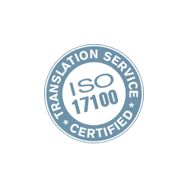Where Did the Gaelic Language Come From? Ireland or Scotland?
There’s a lot of confusion about where the Irish and Scottish Gaelic originated, and the history often looks pretty murky.
Where exactly did Gaelic come from? Who had it first and who were they? How did Celtic come into play and what’s the status of Gaelic today?
We dusted off the history books to find out.
Where did Gaelic come from?
To trace the roots of the Gaelic language, you have to look back to the “parent” language family: in this case, Celtic.
We don’t know a lot about Gaels who brought the Gaelic language here, but we do know that they gradually spread southward towards what is now inland Ireland and Scotland, and they brought the early Celtic language with them.
Gaelic itself came from a language spoken by people called the Gaels, who came from North Eastern Ulster (a northern province in Ireland) down to the islands of Caledonia and the northwestern coastlands of Ireland in the fifth century.
Today, six Celtic languages remain, including Scottish Gaelic, Irish, Welsh, Breton, Cornish, and Manx.
Who Were the Gaels?
We know that the Gaels’ power waxed and waned dramatically through the ages. In 390 BC, they were strong enough defeat Rome with its then-massive empire in full pomp.
They travelled through Europe and left their mark on areas now known as France, England, Ireland and Scotland before they were eventually crushed by the Roman Empire.
Relatively new archaeological evidence — a calendar in early Gaulish — suggests that the Gaels arrived in England as early as 3200 BC and 600 BC as historians previously thought. This suggests that the Celtic languages (of which Gaelic is one) has far deeper roots than previously thought.
What Is the Difference Between Scottish and Irish Gaelic?
Though both came from the same source, Scottish Gaelic and Irish Gaelic are very distinct from each other.
There’s some argument about whether they are different dialects of the same language or different languages altogether, but the fact is — they sound very different.
Each nation has its own dialect and vocabulary. The spelling and pronunciation of many words differ between the two as well. Some northern Irish people can understand Scottish Gaelic and vice versa, but in other parts of the countries, the two Gaelics are not typically considered mutually intelligible.
In Ireland, Gaelic (called Irish by those who live there) is recognised as the official language of the nation, and it is required to be taught in all government-funded schools.
Meanwhile in Scotland, English is the official language and Gaelic is recognised as a minor language.
Translation Difficulties
The future of the Celtic languages is unsure. Despite revitalisation efforts, English remains the overwhelmingly dominant language in many areas that once spoke primarily Celtic languages.
Yet Gaelic translation today can be tricky, thanks to the varying dialects and the orthographic and pronunciation difficulties between Irish and Scottish Gaelic. English, the linguistic invader from the south, adds to the linguistic soup of the region.
A skilled Gaelic translator is familiar with these variations and they’re the best resource when you’re working with other professionals on the other side of a linguistic divide.
At Global Language Services, we offer interpretation and translation. We have offices in Glasgow, Edinburgh, and Inverness to support your translation needs.
To find out if Global Language Services can help provide the Gaelic translation to meet your next business goal, secure a new partnership, or explore new connections, give us a call.





